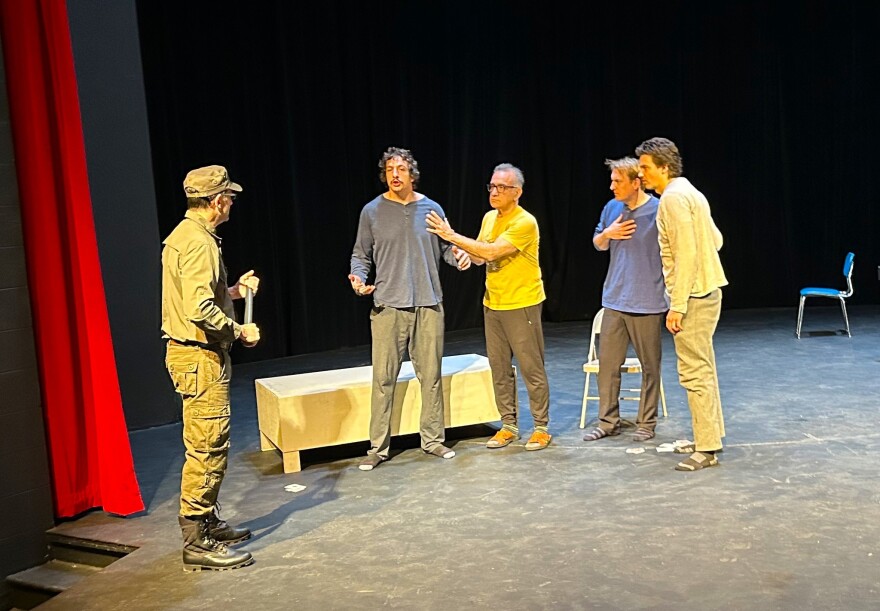
The poet Robert Burns once said, “Man’s inhumanity to man makes countless thousands mourn.” That holds true whether the bloodshed takes place on the Gaza Strip today — or in Iran more than 40 years ago, the setting for a play to open in Anchorage on Friday night.
The script for “When the Moment Comes” is based on a true story about what happened to a group of Baha’is, who refused to convert to Islam.
The year was 1983, four years after Islamic revolutionaries ousted the Shah of Iran, when their focus shifted to religious persecution.
The play is set in the ancient city of Shiraz, where a group of Baha’is have been jailed.
One cell is full of Baha’i women, who pass the time in song and prayer.
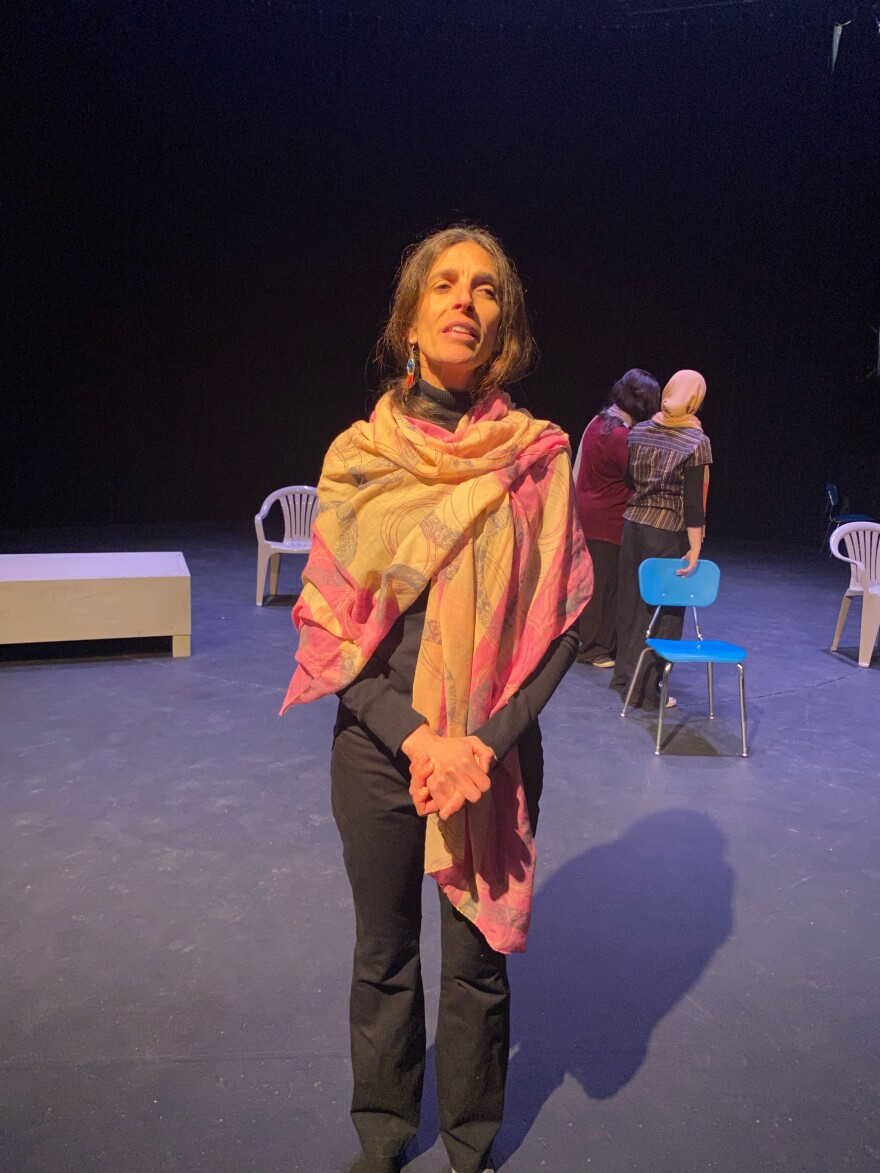
“There’s a line in the play which says the prison was our schoolhouse, and we learned many lessons in there,” said Nava Sarracino, who is both a producer and a performer in the play.
She plays Ruhi Jahanpour, who was swept up in an Islamic Revolutionary Guard crackdown along with a group of friends.
They were told their lives would be spared if they would do one thing: renounce their beliefs.
As they await their fate, they try to cheer each other up and play games. One is called “Remember,” in which they talk about happier times before the revolution — when they could wear dresses and skirts in public — and attend school.
The scene shifts to another cell with a group of Baha’i men, who face the same choice. As they wait, they recite the work of famous Persian poet Hafez.
One of the lines from his poem “Reunion” foreshadows their future: “My soul like a hummingbird, yearning for paradise, shall rise and soar, from the snares of this world.”
“It’s a story that not too many people know about,” says John Sharify, who plays Dr. Zia’uh’llah Ahrari. “They take me away for my execution for the simple fact that I insisted on continuing to practice my faith.”
For Sharify, “When the Moment Comes” is more than just a performance.
“This hits home because this story, which is a story that needs to be told and heard by everyone, is also a family story,” he said.
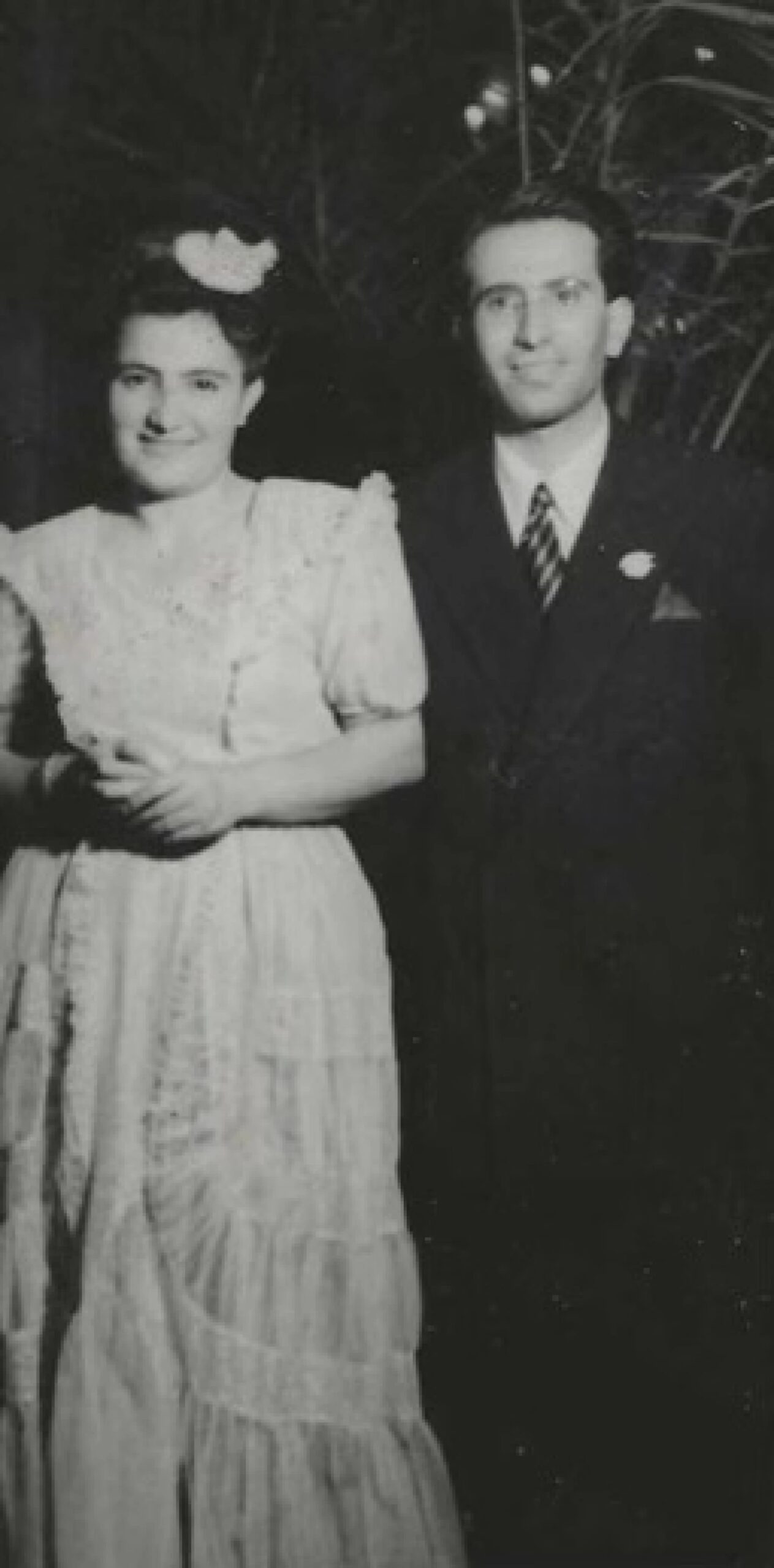
Although John Sharify is not Baha’i, his mother, Gloria Taslimi Sharify, is. Her brother, Abdul Hussein Taslimi, along with a group of other Baha’i leaders, disappeared in August 1980, never to be seen again.
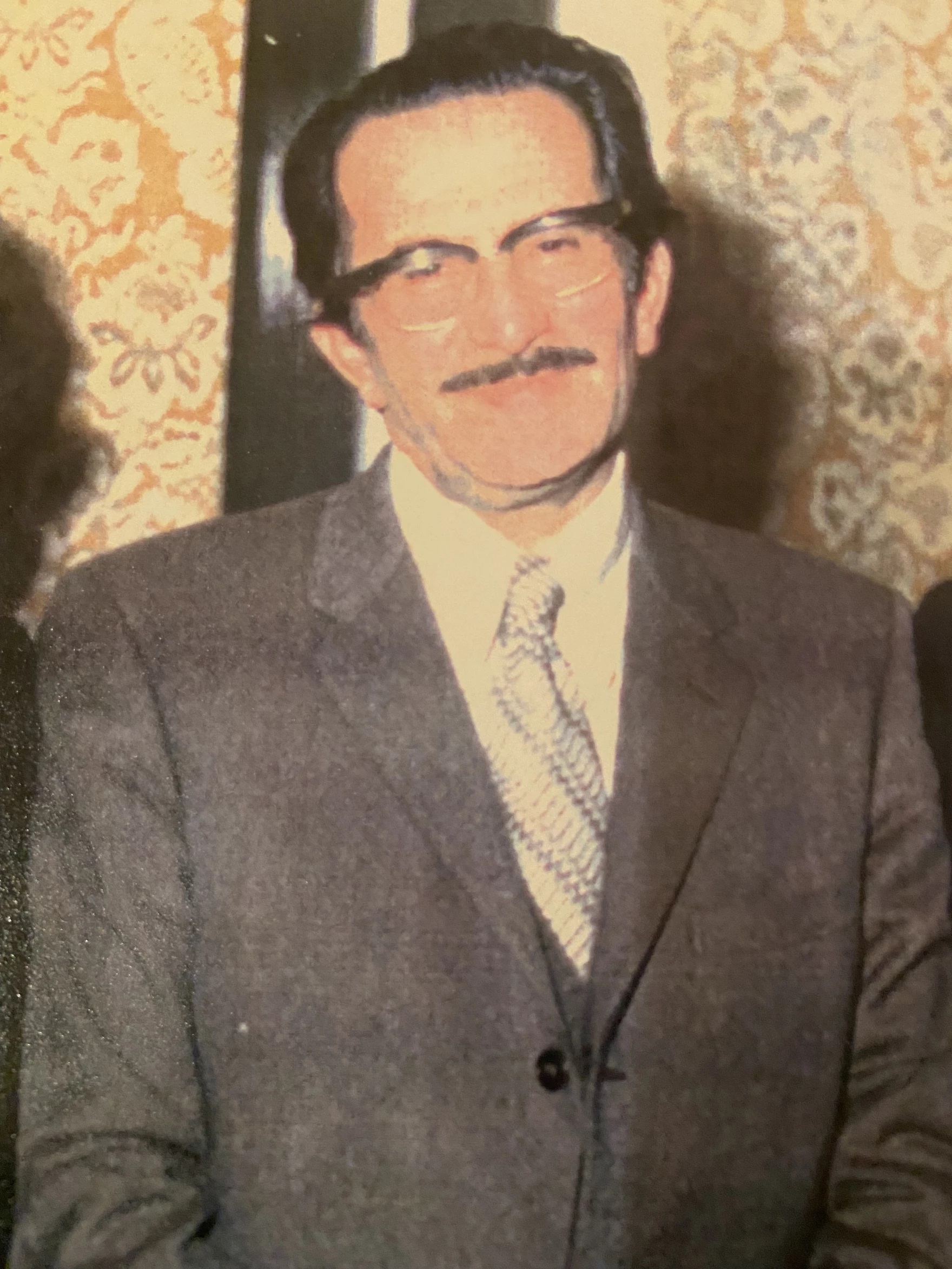
Sharify wonders if his uncle might have known some of the men in the play, like Hedayat Siyhavashi, who hid a trove of Baha’i documents in his own home, so others wouldn’t have to take the risk.
“What’s interesting from the play’s perspective, is that he’s a very jokey, funny, not very serious person. And yet he took on this serious and very scary role,” said Dannesh Bastani, who plays Hedayat.
When the guard comes to take Dr. Ahrari away, Hedayat begs the guard to take him as well.
“Surely you have room for one more,” he says to the guard. “Why not me?”
The guard calls Siyavashi a fool and tells him he doesn’t have time for his jokes. He then takes Dr. Ahrari away to be hanged. Hedayat, though, did not escape execution.
Bastani hopes their stories will evoke more thought and a sense of gratitude for the freedoms we enjoy in this country.
“I can pray to a specific god, and it’s OK,” he said. “And I’m not going to be thrown in prison for it.”
Although the play is a story about Baha’is and is supported by the Anchorage Baha’i Community, the cast is made up of members from a variety of faiths.
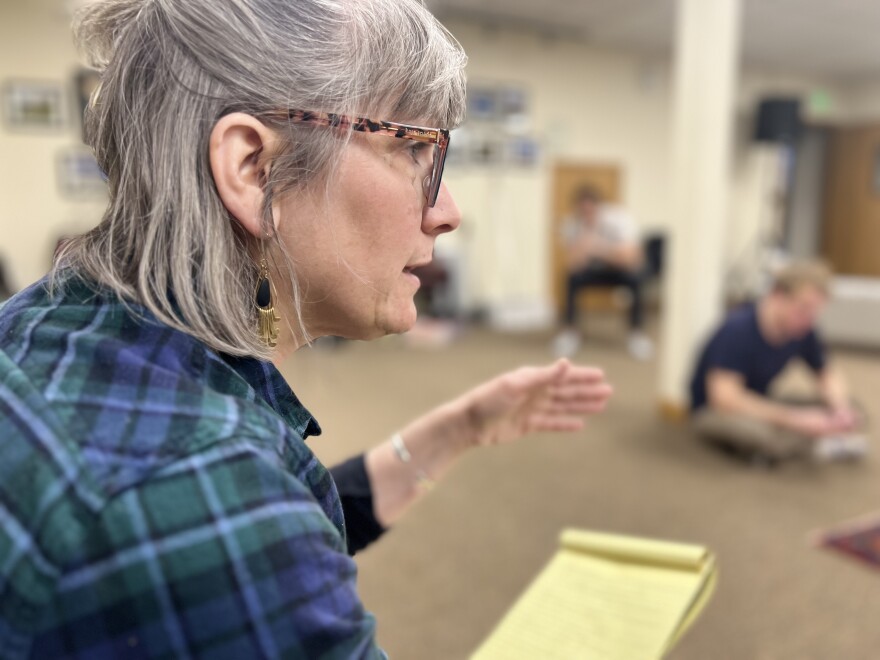
The director, Tamara Rothman, is Jewish.
“I realized I really know little or nothing about the Middle East,” Rothman said, “and I know much less about the Baha’i faith.”
Although there are millions of Baha’is all over the world today, the religion is not well-known because it’s a relatively new faith. Worshippers recently celebrated the 200-year anniversary of the their religion, that began when a Persian prophet named Bahá’u’lláh preached that all the faiths of the world come from one heavenly source — and that he was one of a long line of messengers from God that included Jesus, Mohammed and Buddha.
At the time, Islamic leaders called Baha’i beliefs an abomination to Islam, and it marked the beginning of Baha’i oppression in Iran that human rights groups say continues today.
“This play may have been set in 1983, but the same conditions persist,” Rothman said. “We’ve been watching on the news the plight of other Iranian women who are arrested by the morality police, who find themselves getting beaten because a little lock of hair is showing from under their head scarf.”
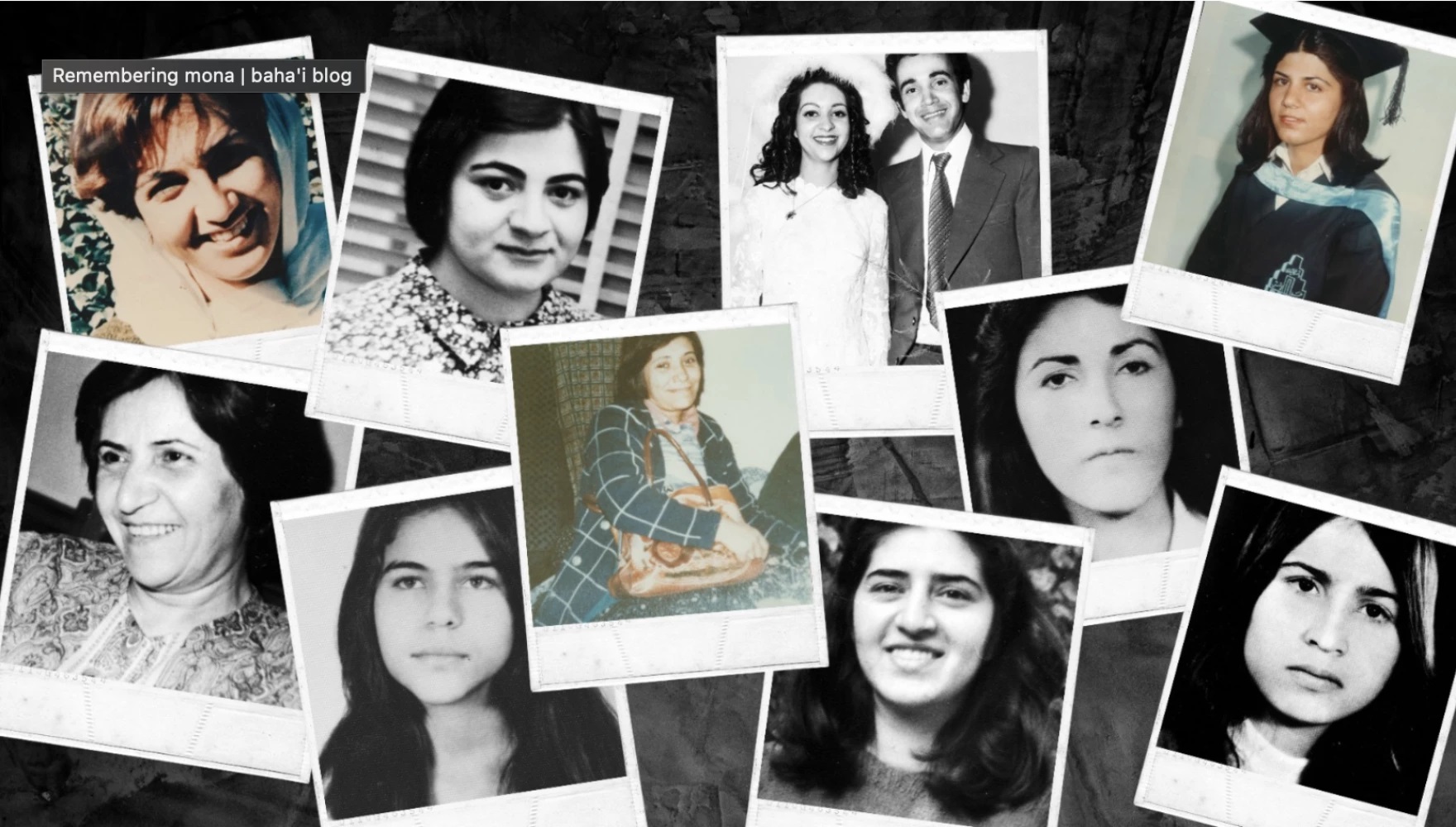
As for the women in the play, the Revolutionary Guard brought 10 of them together to hang one at a time, forcing them to watch each other die — all except Ruhi Jahanpour.
“She was there during one of the darkest chapters of world history, not knowing whether she would live or die,” said Sharify. “Somehow her life was spared. I’d like to ask her, ‘Why do you think that is?’”
Sharify will have a chance to ask the real Ruhi that question himself. Jahanpour will travel from Alabama to Alaska to sit in the audience, where she will watch Sarracino on the stage play herself as a young woman.
One of the most powerful scenes in the play comes when Ruhi recounts her friends’ final moments.
“Do you think they were sad on the day they went to their execution? Were they crying?” she is asked in the script.
“No,” she responds. “They were laughing all the way to the place of execution. The guard couldn’t believe it. He asked them, ‘Do you know where I am taking you?’ ‘Oh, yes,’ they said.”
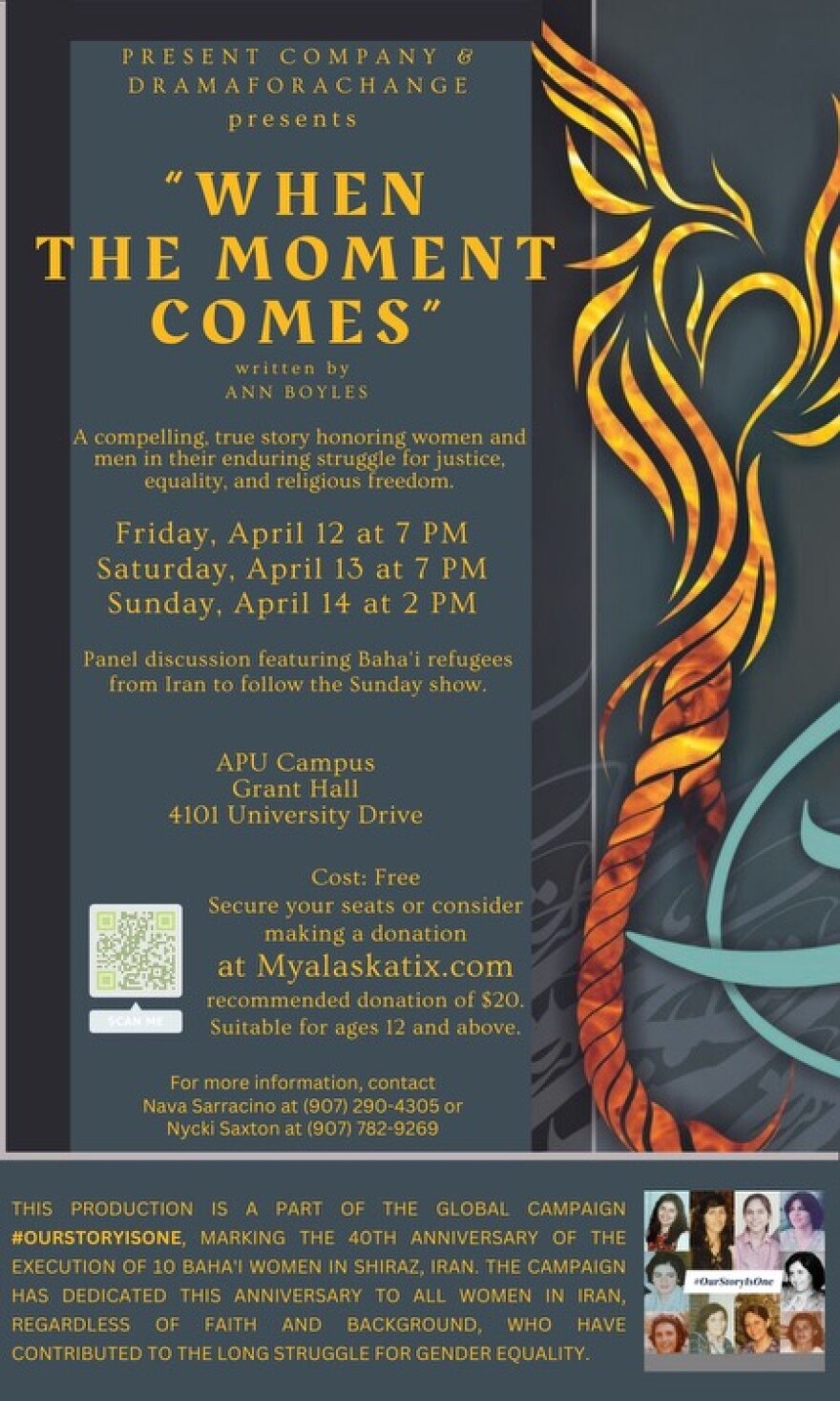
“When the Moment Comes” opens on Friday at 7 p.m. The performances are at Grant Hall on the Alaska Pacific University campus and run through Sunday. There’s also a panel discussion with Baha’i refugees from Iran on Sunday. Many of the refugees, who fled Iran after the 1979 revolution, resettled in Canada and Alaska.
Ann Boyles, a Canadian author, wrote the play. It’s a co-production of Tamara Rothman and Nava Sarracino, supported by the Anchorage Baha’i community. The play is also part of a global campaign called “Our Story is One” to raise awareness about religious persecution.




